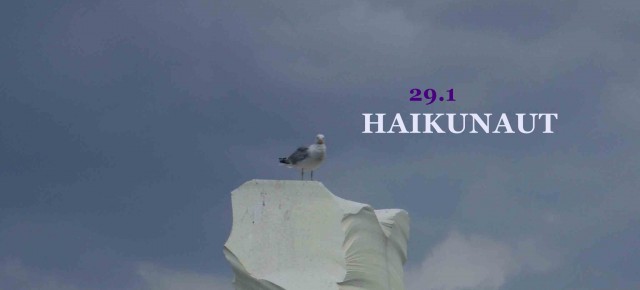
I came to the haiku world 26 years ago with just one desire: to translate the poetry of Issa – some 20,000 verses, only a tiny fraction of which had appeared in English at the time. I plunged into Japanese language study but soon realized that this alone was not sufficient preparation for my task. Thomas Wright, the translator of Zen Master Dōgen's Refining Your Life, faced a similar predicament. He writes in his preface:
For me, to translate any work of Dōgen without basing my daily life upon his most fundamental teaching . . . would be meaningless. Unless the posture of one's life addresses the same questions Dōgen Zenji addressed, there is little hope that the translation will be much more than a technically correct but totally incomprehensible work (Weatherhill, 1983: viii).
The same truth applies to the would-be translator of haiku: How can one re-create Issa's verbal magic if one doesn't, as Wright recommends, adopt that poet's own life posture, embracing for one's self the joyful discipline of haiku? Answer: one can't.
As time went on, I slithered inside the haiku-writing process, emulating Issa and declaring myself a 'haiku guy' – scribbling incessantly my own one-breath verses in a little hip-pocket pad that I carried with me always. Like my comrade translator, Thomas Wright, I came to discover first-hand the reality behind the words I was struggling to echo in my own language and, in this way, my haiku journey began.
Perhaps it was my background as a literary critic that led me to focus, in the early years, on product instead of process: forever asking (and attempting to answer): What is haiku?
Is it an imagistic nature poem?
Is it a comic verse making fun of human foibles?
Is it a silly, witty numbers game of five-seven-five syllables?
Yes, yes, and yes.
Though some scholars will insist on calling only serious poems of the first type 'real' haiku, referring to the other two types as senryu and zappai, it's all haiku to me, and it's all good.
It's like sushi . . . In Japan, sushi signifies, specifically, a vinegar-flavored lump of rice. In English speaking lands, when we hear the word 'sushi,' we are apt to picture something more, sitting atop the rice: yummy slices of raw fish. Language purists in our midst will correct us and sniff, 'That's not real sushi!' . . . but they fight a losing battle. Words live their own lives, by their own rules, when they migrate from one language to another.
Sushi and haiku, like it or not, mean more in English than they do in Japanese. Haiku, senryu and zappai may be useful terms to critics and literary scholars, but, for most English speakers, 'haiku' entails a spectrum of short verses, with witty 5-7-5 syllable games at one end and, way on the other end, poems that touch deep places in the heart and mind: art in its finest sense.
The poems that Keiji Minato and I have gathered for this special haiku issue of Cordite lean more toward the artistic end of the spectrum. It's not that we harbor snobbish disdain for the lighter side of haiku: those clever concoctions of 5-7-5 that seek only to make the reader smile or laugh: Spam-ku, Computer Error Message Haiku, and spoofs like the hilarious 5-7-5 'found' poetry of Joe Dimaggio as presented in the New Yorker (Aug. 6, 2007: 48). The sad truth is, for many of the uninitiated, this type of haiku is all that they know. Keiji and I, in this selection of poems written by poets from around the world, seek to emphasize the artistic side of the haiku spectrum and in the process, we hope, open some eyes.
The important question that one can ask about this sort of haiku isn't 'What is it?' but rather, 'How is it?'
How is haiku?
How does the haiku poet approach the universe and live in it? My answer to this question – which is always evolving, always provisional (remember, it's the process that matters) – will, I hope, help you better enjoy and more fully receive the gifts of words that await you in Haikunaut.
Haiku is a posture, a way of seeing and being, a philosophy of life in which one dedicates one's self to noticing, not ignoring; to being open, not closed; to discovering, not defining; to inviting meaning onto a page, never imposing it. Poets of haiku peer expectantly into the moments and moods of this universe of which we are part, ready always to be startled, to receive with open eyes the treasures and enigmas that others miss in their hell-bent rush through traffic and life.
Every poem in Haikunaut testifies to the 'haiku posture' of those who made them: a way of being in the world without which the world would be a drabber, emptier place.
Keiji and I thank our fellow contributors not only for the verses they have generously offered for our enjoyment and meditation, but also for living, day to day, haiku.
Now, enjoy!
[Some of the above was adapted from my editor's preface to The Haiku Society of America Members' Anthology, 2003.]









